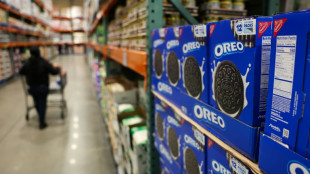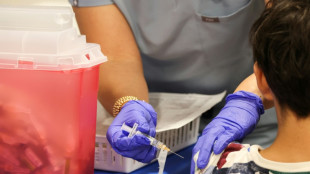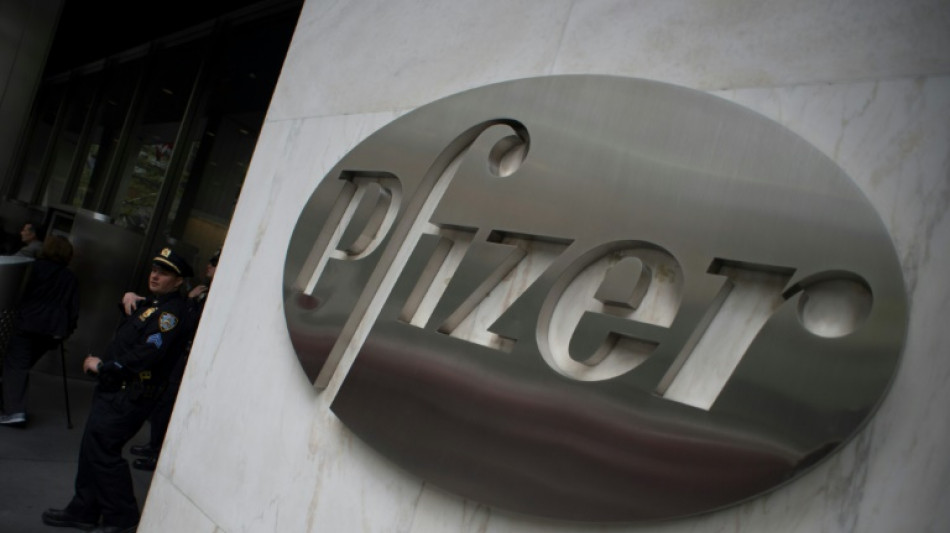
-
 Confusion reigns over Venezuela's oil industry as US looms
Confusion reigns over Venezuela's oil industry as US looms
-
Stocks retrench as traders eye geopolitics, US jobs data
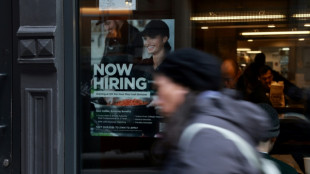
-
 US trade gap shrinks to smallest since 2009 as imports fall
US trade gap shrinks to smallest since 2009 as imports fall
-
Russia releases French researcher in prisoner exchange
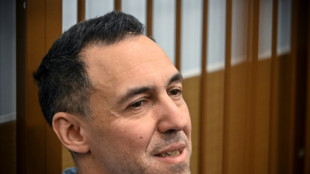
-
 Spain signs agreement with Church to compensate abuse victims
Spain signs agreement with Church to compensate abuse victims
-
Macron accuses US of 'breaking free from international rules'
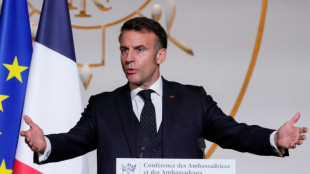
-
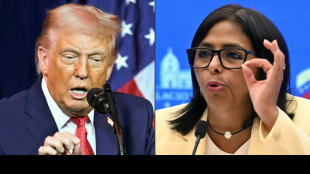 US could run Venezuela, tap its oil for years, Trump says
US could run Venezuela, tap its oil for years, Trump says
-
England to stick with Stokes and McCullum despite Ashes flop
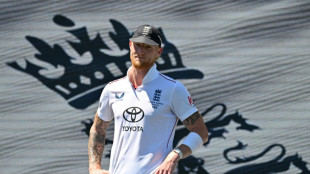
-
 Nobel laureate Bialiatski tells AFP 'important' to keep pressure on Belarus
Nobel laureate Bialiatski tells AFP 'important' to keep pressure on Belarus
-
Russia slams Western peacekeeping plan for Ukraine

-
 Bordeaux's Du Preez wary of Northampton's Champions Cup revenge mission
Bordeaux's Du Preez wary of Northampton's Champions Cup revenge mission
-
Romero apologises for Spurs slump as crisis deepens
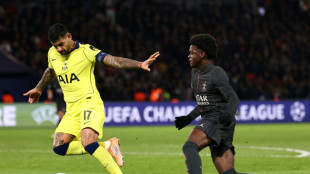
-
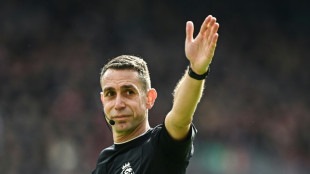 Former Premier League referee Coote gets suspended sentence for indecent image
Former Premier League referee Coote gets suspended sentence for indecent image
-
New clashes hit Iran as opposition urges protests, strikes

-
 Stocks retreat as traders eye geopolitics, US jobs data
Stocks retreat as traders eye geopolitics, US jobs data
-
'Girl with a Pearl Earring' to be shown in Japan, in rare trip abroad

-
 Syria tells civilians to leave Aleppo's Kurdish areas
Syria tells civilians to leave Aleppo's Kurdish areas
-
'Sign of life': defence boom lifts German factory orders

-
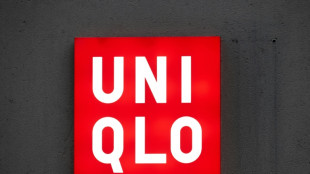 Japan's Fast Retailing raises profit forecast after China growth
Japan's Fast Retailing raises profit forecast after China growth
-
Olympic champion Zheng out of Australian Open

-
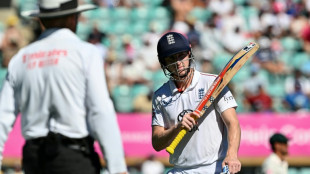 England's Brook 'deeply sorry' for nightclub fracas
England's Brook 'deeply sorry' for nightclub fracas
-
New clashes in Iran as opposition urges more protests

-
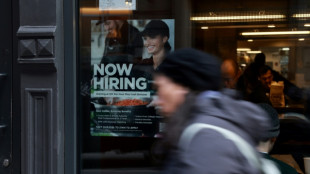 Equity markets mostly down as traders eye US jobs data
Equity markets mostly down as traders eye US jobs data
-
England cricket board launches immediate review into Ashes debacle
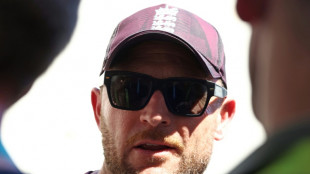
-
 Dancing isn't enough: industry pushes for practical robots
Dancing isn't enough: industry pushes for practical robots
-
Asian markets mostly down as traders eye US jobs data
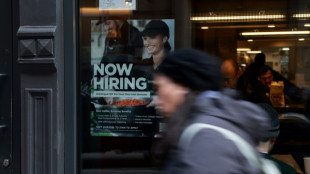
-
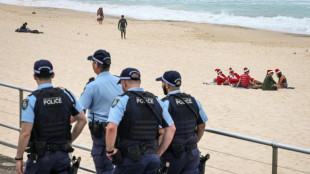 Australia to hold royal commission inquiry into Bondi Beach shooting
Australia to hold royal commission inquiry into Bondi Beach shooting
-
Sabalenka accuses tour chiefs over 'insane' tennis schedule
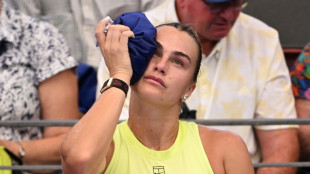
-
 Cambodia to liquidate bank founded by accused scam boss
Cambodia to liquidate bank founded by accused scam boss
-
Farmers enter Paris on tractors in protest at trade deal

-
 Viral 'Chinese Trump' wins laughs on both sides of Pacific
Viral 'Chinese Trump' wins laughs on both sides of Pacific
-
Stokes vows to stay on but 'wrongs to put right' after crushing Ashes defeat
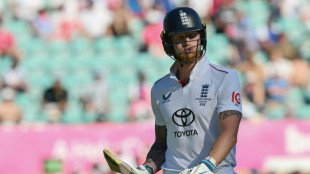
-
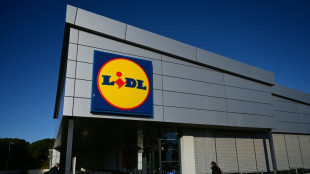 Lidl to drop broadcast TV ads in France
Lidl to drop broadcast TV ads in France
-
Stokes admits 'wrongs to put right' after crushing Ashes defeat
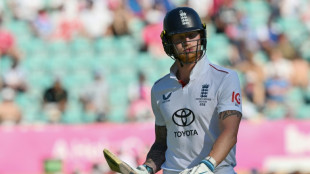
-
 Sabalenka impresses again in Australian Open warm-up, vows more to come
Sabalenka impresses again in Australian Open warm-up, vows more to come
-
Gilgeous-Alexander to the rescue as Thunder sink Jazz in overtime
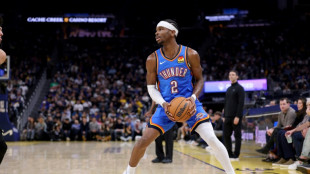
-
 From Diaz to 'Mazadona' - five new faces starring at AFCON
From Diaz to 'Mazadona' - five new faces starring at AFCON
-
Startups go public in litmus test for Chinese AI

-
 Death of Bazball: Five things we learned from Ashes series
Death of Bazball: Five things we learned from Ashes series
-
Australia's emotional Khawaja bows out for final time with Ashes win
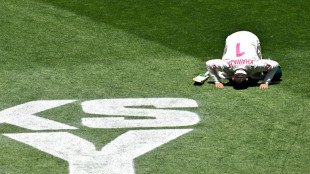
-
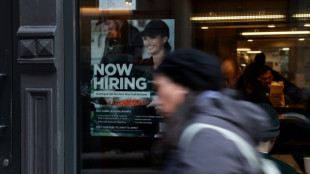 Asian markets mixed as traders eye US jobs data
Asian markets mixed as traders eye US jobs data
-
Australia win final Test to complete 4-1 Ashes triumph over England
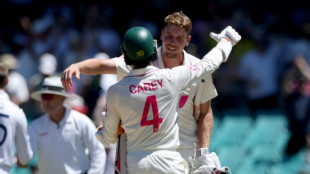
-
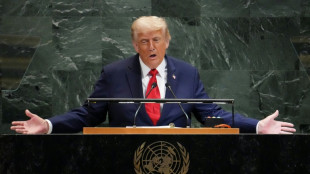 Trump withdraws US from key climate treaty, deepening global pullback
Trump withdraws US from key climate treaty, deepening global pullback
-
Trump pulls US out of key climate treaty, deepening global pullback
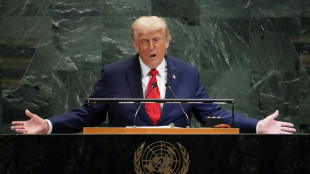
-
 Morocco under huge pressure as hosts face Cup of Nations heat
Morocco under huge pressure as hosts face Cup of Nations heat
-
Australia heatwave stokes risk of catastrophic bushfires

-
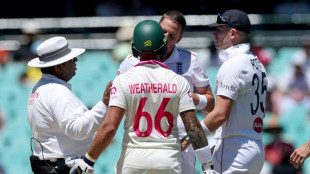 Australia 71-2 at lunch, need 89 more to win final Ashes Test
Australia 71-2 at lunch, need 89 more to win final Ashes Test
-
Study shows how fast kilos return after ending weight-loss drugs
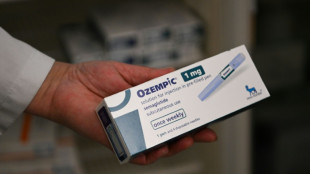
-
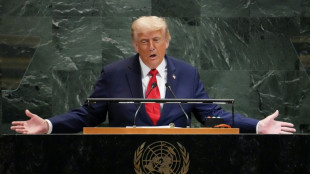 Trump pulls US out of key climate treaty, science body: White House
Trump pulls US out of key climate treaty, science body: White House
-
England all out for 342, set Australia 160 to win final Ashes Test
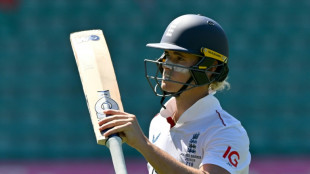
| SCS | 0.12% | 16.14 | $ | |
| CMSC | 0.33% | 22.995 | $ | |
| RBGPF | -0.27% | 81.57 | $ | |
| BCC | 1.44% | 74.54 | $ | |
| NGG | 0.35% | 79.69 | $ | |
| JRI | 0.55% | 13.72 | $ | |
| RELX | 0.25% | 42.28 | $ | |
| RIO | -2.22% | 83.03 | $ | |
| CMSD | -0.47% | 23.49 | $ | |
| RYCEF | 0.29% | 17.05 | $ | |
| VOD | -0.68% | 13.88 | $ | |
| BP | -0.37% | 33.545 | $ | |
| BTI | 1.73% | 54.23 | $ | |
| BCE | 1.89% | 23.78 | $ | |
| GSK | 0.89% | 51.073 | $ | |
| AZN | 0.46% | 95.6 | $ |

WHO 'strongly recommends' Pfizer's Covid pill
The World Health Organization said Friday it "strongly recommended" Pfizer's Covid-19 antiviral pill Paxlovid for patients with milder forms of the disease who were still at a high risk of hospitalisation.
However the UN agency warned it was "extremely concerned" that the inequality in access seen with Covid vaccines would again leave low- and middle-income countries "pushed to the end of the queue".
US pharma giant Pfizer's combination of nirmatrelvir and ritonavir was the "superior choice" of treatment for unvaccinated, elderly or immunocompromised people with Covid, the WHO's experts said in the BMJ medical journal.
For the same patients, the WHO also made a "conditional (weak) recommendation" of the antiviral drug remdesivir made by US biotech firm Gilead -- which it had previously recommended against.
The WHO recommended Paxlovid over remdesivir, as well as over Merck's molnupiravir pill and monoclonal antibodies.
Pfizer's oral treatment prevents hospitalisation more than the "available alternatives, has fewer concerns with respects to harms than molnupiravir, and is easier to administer than intravenous remdesivir and antibodies," the WHO's experts said.
The new recommendation was based on the findings of two trials involving almost 3,100 patients which showed that Paxlovid reduced the risk of hospital admission by 85 percent.
The trials also "suggested no important difference in mortality" and "little or no risk of adverse effects leading to drug discontinuation".
The recommendation applies to people over the age of 18, but not to pregnant or breastfeeding women.
It also does not apply to patients with a low risk of complications from the disease, because the benefit would be minimal.
The WHO's experts also declined to give an opinion for patients with severe forms of the disease, due to a lack of data.
- Limitations and inequities -
The WHO stressed the limitations of such antiviral treatments.
"The medicine can only be administered while the disease is at its early stages," they said.
This means the patients must quickly test positive and be prescribed the pill by a doctor -- all of which can pose obstacles for low- and middle-income countries, the WHO said.
Yet Covid pills have been seen as a potentially huge step in ending the pandemic as they can be taken at home, rather than in hospital.
Patients must start taking their Paxlovid pills within five days of the onset of symptoms -- the course then lasts five days.
Remdesivir can be taken within seven days of symptoms setting in, but it is administered intravenously over three days.
- Questions about cost -
The WHO called on Pfizer to "make its pricing and deals more transparent" for Paxlovid.
Lisa Hedman, the WHO's senior advisor on access to medicines, said that radio station NPR reported a full course of Paxlovid costs $530 in the United States. Another source unconfirmed by WHO gave the price of $250 in an upper-middle income country.
Remdesivir meanwhile costs $520, Hedman said, but generic versions made by companies in India sell for $53-$64.
There is also a question mark over whether the virus could build resistance to these treatments.
But earlier this month Pfizer CEO Albert Bourla predicted a bright future for treatments like Paxlovid as people grow tired of getting further booster vaccinations.
Coming under fire for prioritising wealthy countries with its vaccine, Pfizer has agreed to allow some generic drugmakers around the world to make cheaper versions of Paxlovid under a UN-backed scheme.
But on Friday the WHO "strongly recommended" that Pfizer let more generic manufacturers produce the drug and "make it available faster at affordable prices".
F.Dubois--AMWN
